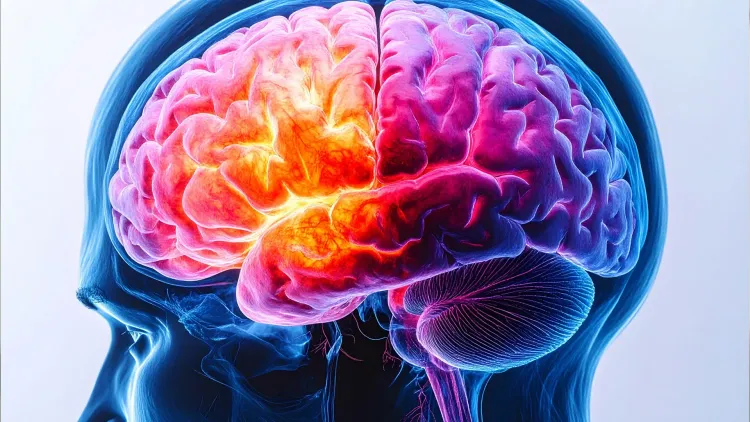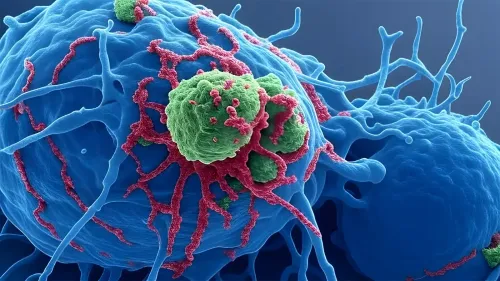Could the Brain Be Key to New Treatments for Type 1 Diabetes?

Synopsis
Key Takeaways
- The brain could be central to new type 1 diabetes therapies.
- Leptin may help manage blood glucose levels effectively.
- Current treatments focus heavily on insulin administration.
- Understanding brain signals may prevent complications like DKA.
- This research could transform diabetes management practices.
New Delhi, Aug 4 (NationPress) A recent study suggests that the brain may become the focal point for innovative treatments for type 1 diabetes, potentially revolutionizing insulin management. Researchers previously discovered that an acute complication of type 1 diabetes, known as diabetic ketoacidosis (DKA), can be mitigated through the use of the hormone leptin, even in the absence of insulin.
In an analysis published in the Journal of Clinical Investigation, the research team detailed how leptin influences the brain and its potential future therapeutic applications.
DKA occurs when the body fails to produce insulin and begins to use fat as an energy source, leading to dangerously high levels of sugar (glucose) and ketoacids in the bloodstream.
Traditionally, doctors have administered insulin to treat this complication. However, new evidence reveals that when insulin levels are inadequate, the brain plays a critical role in the development of DKA, according to researchers from the University of Washington.
When insulin is lacking, "the brain receives signals indicating that the body is out of fuel, even when this is not the case. This communication is partially driven by low levels of the hormone leptin," explained Dr. Michael Schwartz, a Professor of Medicine at the University’s School of Medicine.
Leptin, which is produced by fat cells in the body, aids the brain in regulating appetite and body weight. It travels through the bloodstream, especially impacting a region known as the hypothalamus.
The researchers highlighted that controlling blood glucose through leptin could open new treatment pathways for patients with type 1 diabetes.
Schwartz emphasized that managing insulin presents a significant burden for patients and their families.
"I believe if it were possible to manage type 1 diabetes without daily insulin injections and constant blood sugar monitoring, patients would consider that a breakthrough," he noted.
By convincing the brain that fuel reserves are sufficient, or by inhibiting specific neurons that stimulate the production of glucose and ketones, the body can halt the processes that lead to severe hyperglycemia and DKA.
"This novel perspective challenges the long-held belief that insulin deficiency is the sole cause of diabetic ketoacidosis, a view that has persisted for decades," said Schwartz.
"It underscores the significant role the brain plays in the development of uncontrolled diabetes—and may provide the key to developing new treatments."









